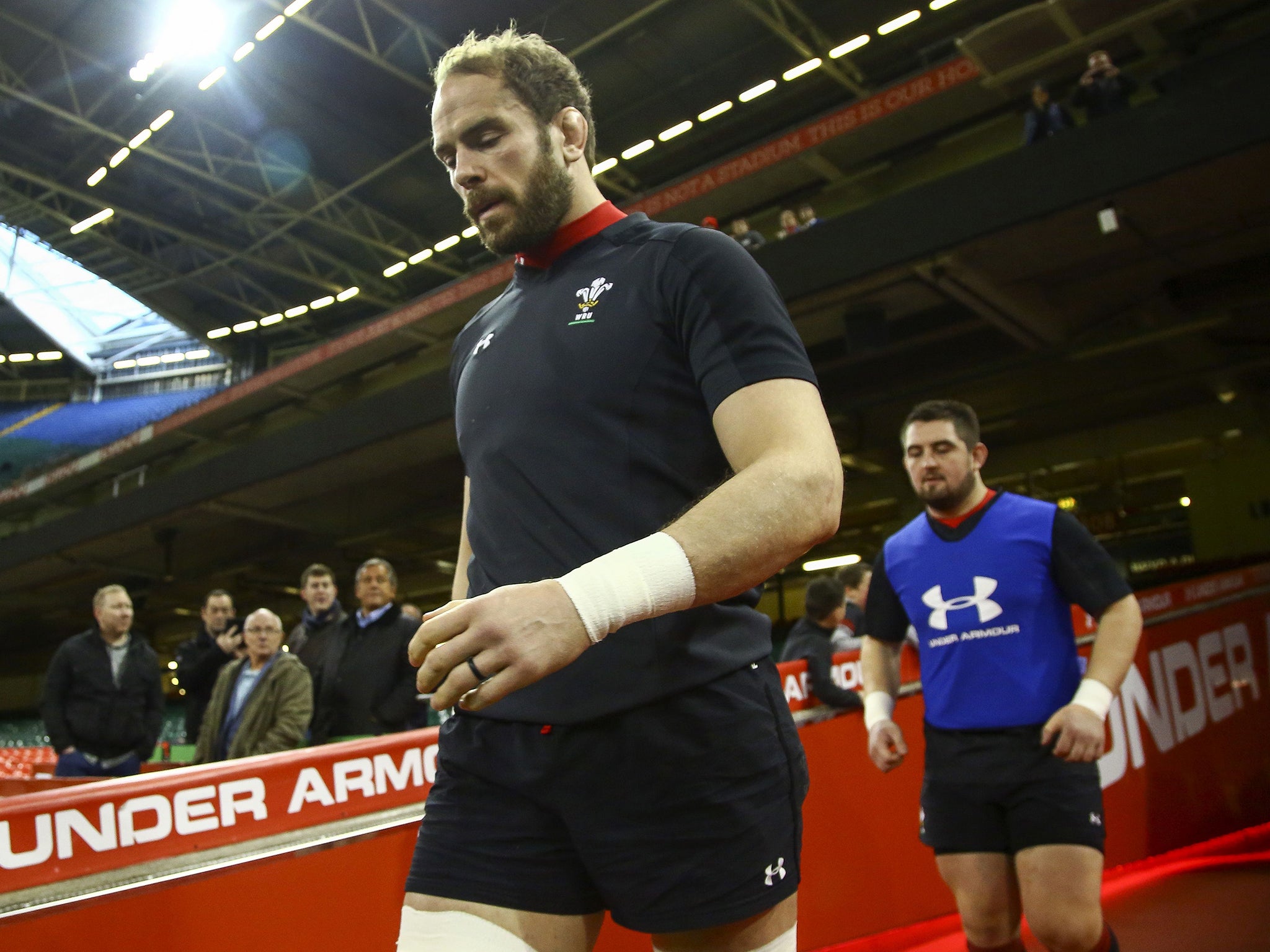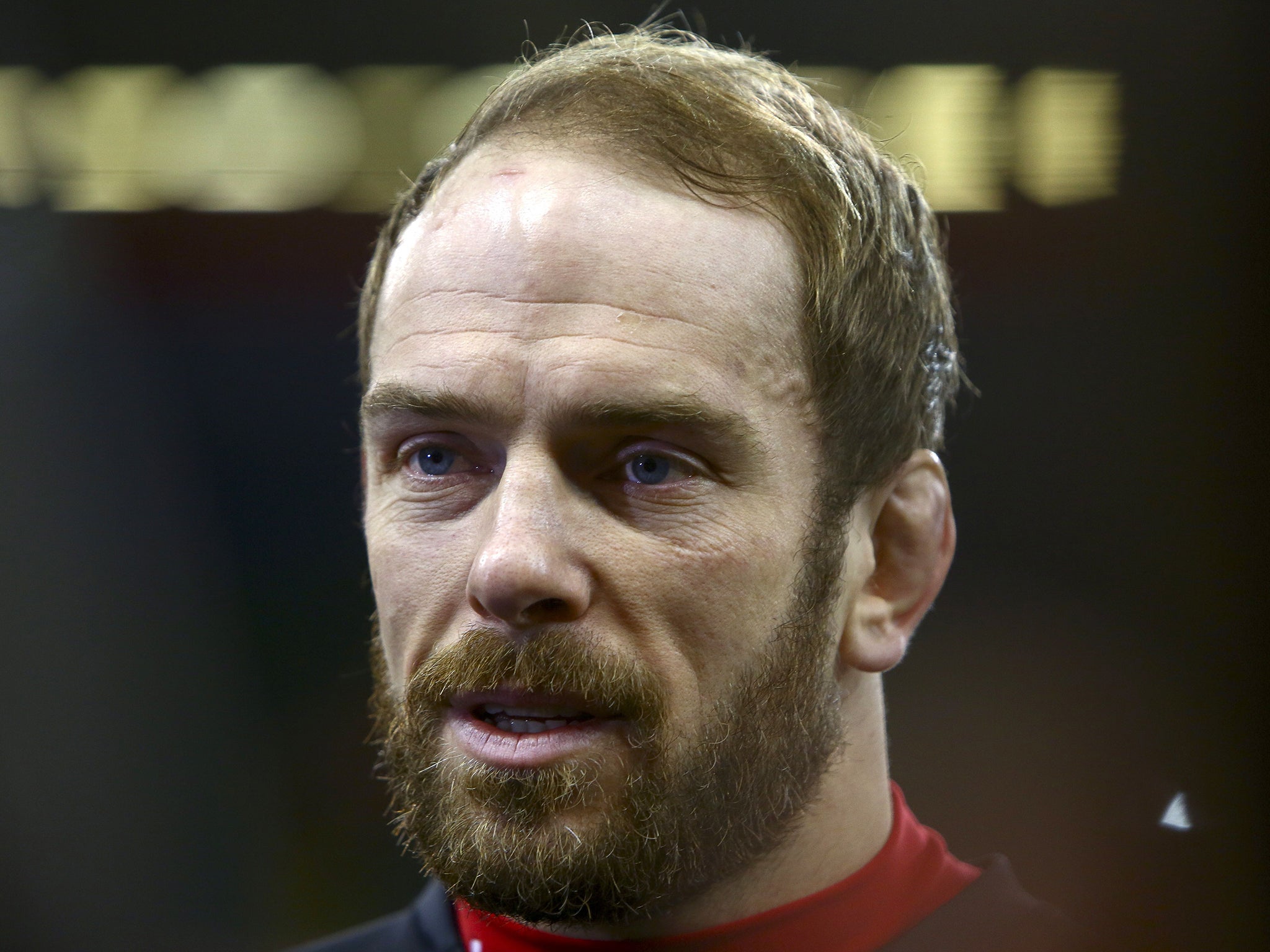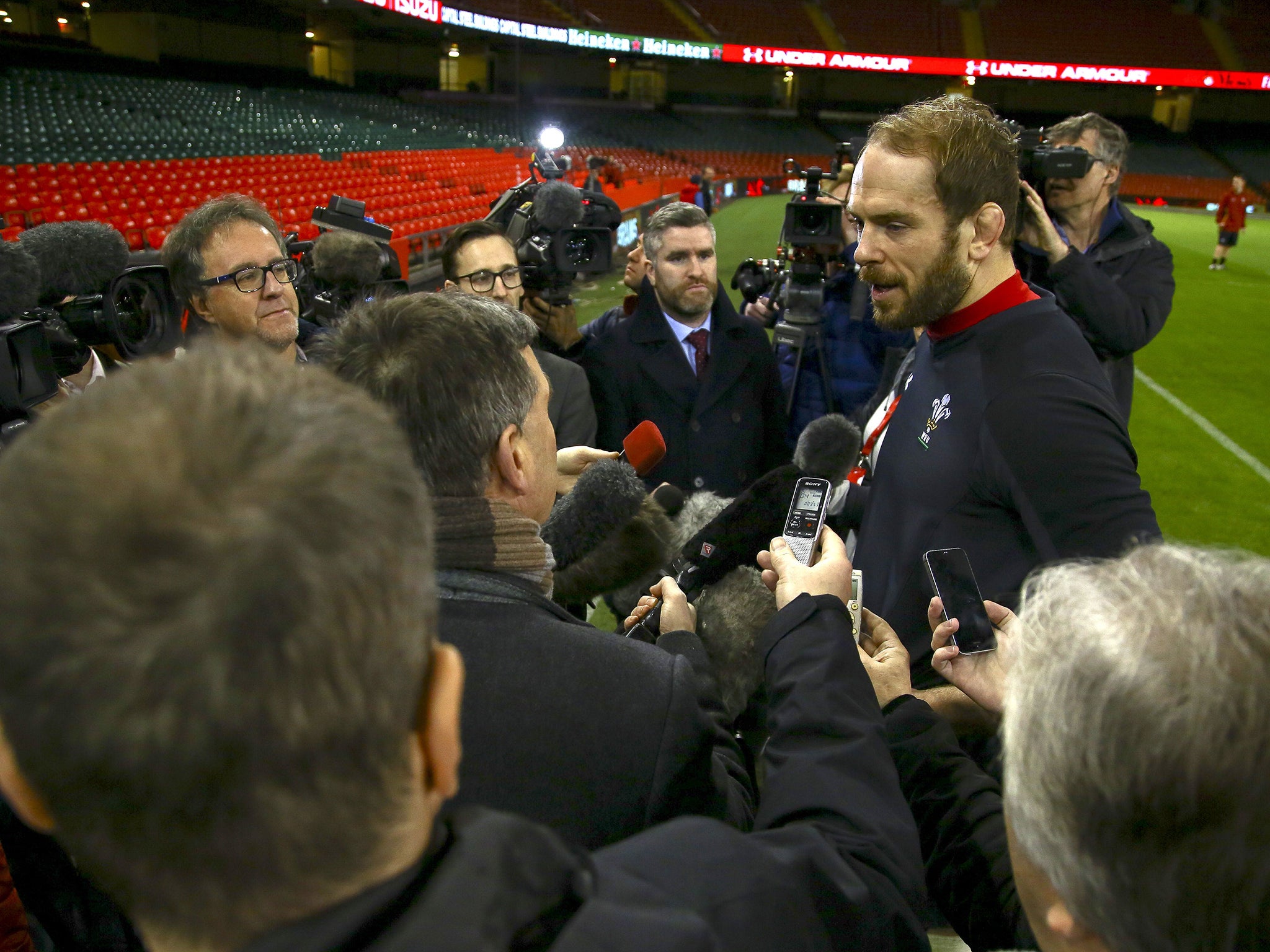How Alun Wyn Jones went from a 'petulant young rugby player' to Wales' last pillar standing and join the greats
Warren Gatland has watched the current Wales captain mature throughout his reign and believes there's no doubt that he will go down as a legend of Welsh rugby

Alun Wyn Jones will earn his 123rd Wales cap in Cardiff on Saturday. As every major tournament comes around, the legend gets bigger.
Finally, it seems the enormity of his achievement in defying age, daily physical persecution and a relentless fixture schedule to thrive in an environment which would have broken most men, is being recognised.
Almost 12 years after making his international debut as a fresh-faced graduate of Llandovery College, the 32-year-old Wales captain is showing no sign of relenting.
Retirement? Don’t even go there.
It is testimony to the quality and consistency of his displays that any British and Irish Lions team to play tomorrow would have Jones’s name inked indelibly on the team sheet. With nine Lions caps, 223 Ospreys appearances and 13 seasons as a professional rugby player under his belt, the 18-stone lock has done the hard yards.
Few know him better than Warren Gatland, whose Wales coaching career began 18 months after Jones made his debut against Argentina in Puerto Madryn in 2006, and the New-Zealander is in no doubt about the contribution he has made.
“He’s going to go down as a legend of the game in Wales,” Gatland said. “People are going to recognise the contribution he has made to the game and what a competitor he is, how demanding he is of himself and of others.
“I’m fortunate enough to have had a lot of experiences with him and seen him mature, grow up, have kids and go from a being a young man to a petulant young rugby player to a more relaxed and focused man and player because of his other responsibilities.
“But there’s no doubt about the significant impact he’s made during his time as a professional rugby player.”
With his first daughter Mali born in 2015 and another child expected this spring, Jones has mellowed noticeably off the field in recent times.
He no longer carries the air of frustration and simmering anger which characterised his early career as he raged against a rugby machine which preaches great riches on the pulpit of player welfare but rarely delivers much in terms of tangible change.

He is intelligent, articulate and engaging company, desperate for the spotlight to fall elsewhere as he goes about the business of preparing every day to be a world-class tight five forward.
But like it or not, his performances for Wales and the Lions over the last decade have ensured he will be remembered alongside the likes of Martin Johnson, Willie John McBride and Paul O’Connell as one of the home unions greatest post-war locks.
As a former captain of the Lions – he captained them to a series victory in Sydney in 2013 when Sam Warburton missed the third Test through injury – and current captain of Wales, he has already achieved a status few players could dream of.
“It’s funny you talk about status,” he said. “I’ve played for Ospreys, haven’t got to a quarter final. I’ve played for Wales and haven’t won enough with them. I’ve still got the opportunity, who knows for how long.
“What is status? I know my status at home. I’m definitely not top of the tree there.”
While this year’s latest expression of insanity incarnate, also known as professional rugby’s fixture calendar, has already broken many, Jones keeps on grinding through the gears. He has learnt the art of self-preservation by seeking inner calm through his family. The serious strength and conditioning can wait for the precious “off” season afforded professional rugby players.
His performance levels rarely drop below very good and his refusal to pick and choose when he plays has earned him respect throughout the rugby world.
“Maybe I’m too stupid to get tired,” he said. “I went on Lions tours in 2009 and 2013 and have played in three World Cups and apart from the odd injury I have never pulled myself from a game.
“I’m a bit old school. When you’ve got a job, you do your job. It’s tough sometimes and you feel like you only get time off when you’re injured but ultimately I had 10 weeks off in the summer so I can’t complain.
“Don’t get me wrong, back in the day I probably got frustrated. But if you’re picked, you play. Simple as that. I’ve been doing it for quite a few years so maybe I’m just used to it. Maybe earlier in the season you want to help your team out. I don’t know if it’s anything as profound as loyalty but I just don’t want to see us where we are at the minute.”

With Sam Warburton, Jonathan Davies, Rhys Webb, Dan Biggar and Liam Williams already on the medium to long-term injured list after touring with the Lions last summer, Jones is one of Gatland’s last pillars left standing before the Six Nations has even begun.
If he is still standing by the end of the tournament, Wales will be in good shape. Whatever he does next, his place in the history books is assured.
Join our commenting forum
Join thought-provoking conversations, follow other Independent readers and see their replies
Comments